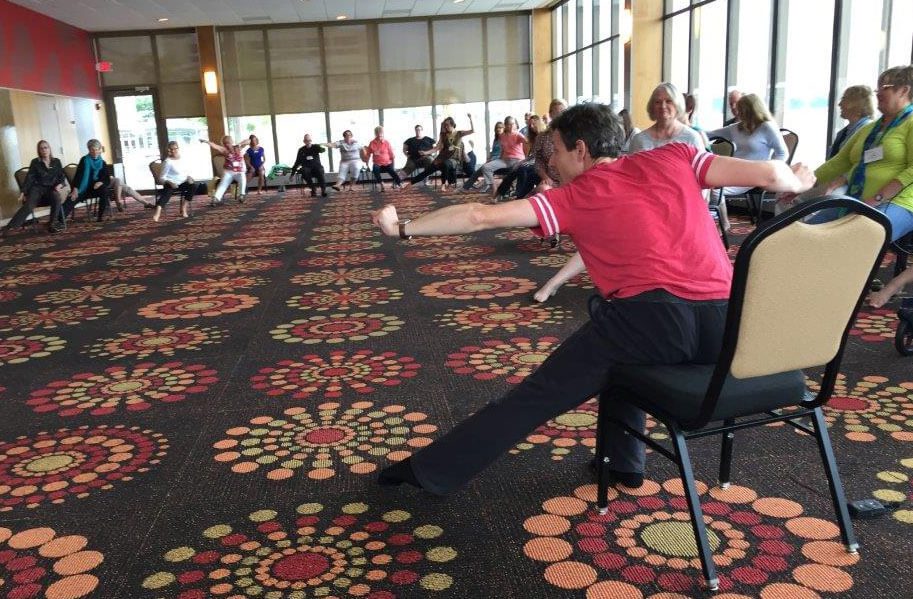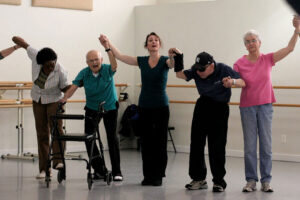
Last month, participants in the University of Wisconsin-Madison’s Summer Institute on Mental Disorders and the Older Adult experienced a unique perspective on Parkinson’s disease. David Leventhal discussed his work with Dance for PD, a collaboration of the Mark Morris Dance Group and the Brooklyn Parkinson Group in New York City. The program offers movement classes to improve the quality of life for those with Parkinson’s.
“For an hour, people can come in and escape thinking they’re patients,” Leventhal told Wisconsin Public Radio’s “Central Time” during his visit to Madison on July 28-29. “They can feel that they’re dancers. And at the same time they’re able to focus on all the strategies and skills that dancers learn to move with fluidity, grace, balance, and intent. Those are the elements that start to go away with Parkinson’s.”

At the Summer Institute on Mental Disorders and the Older Adult, Leventhal spoke to an audience of care managers, social workers, nurses, physical therapists, occupational therapists, psychologists, physicians, physicians’ assistants, speech therapists, and others who work with older adults. He suggested incorporating an arts-based approach in their individual practices.
“It’s not that everyone attending the institute is going to leave being a dance teacher,” he told “Central Time.” “But I hope they can integrate some aspect of creative work into their practices so their clients learn what the arts can do. Creative dance games can be done very simply in a mental health setting.”
Only programs of their kind in the Midwest
The Summer Institute on Mental Disorders and the Older Adult and the related certificate series, which began in 2008, are the only programs of their kind in the Midwest, providing the latest evidence-based information about geriatric mental illness. Day one of the Summer Institute offered an intensive look at late-life depression, anxiety, sleep disorders, and executive function. Day two focused on Parkinson’s disease and Lewey Body Dementia.
The Summer Institute is offered every two years by UW-Madison’s Division of Continuing Studies.